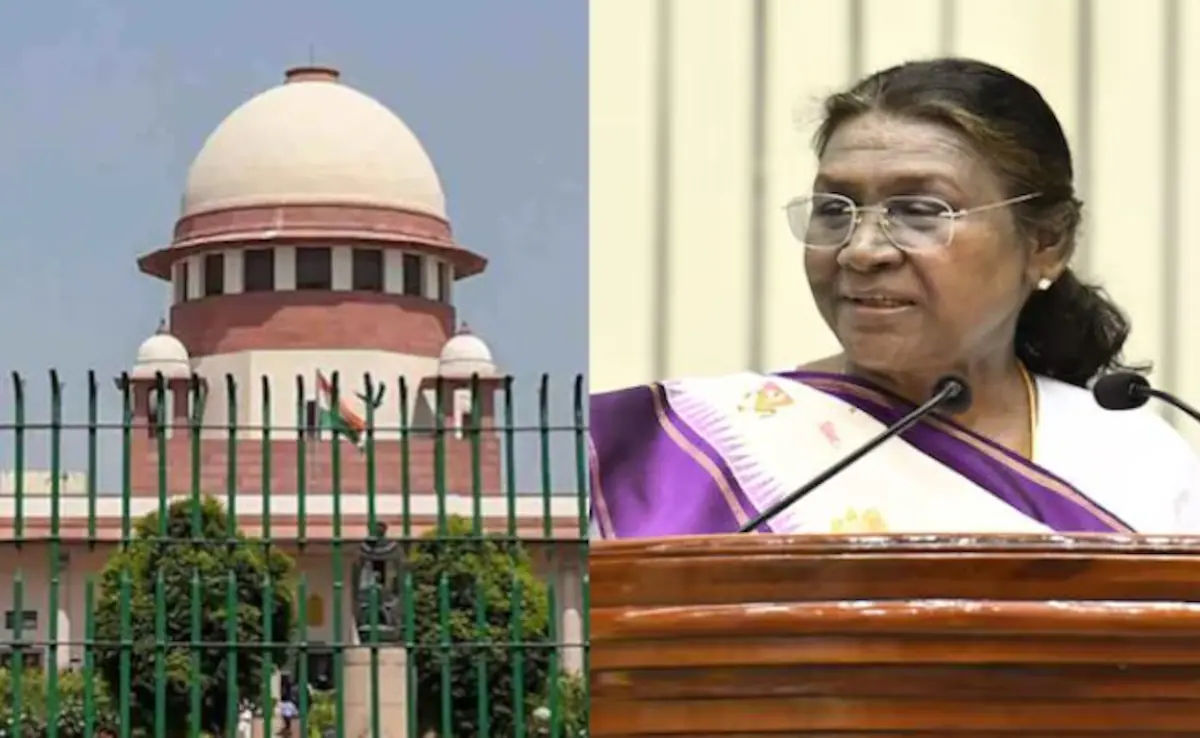For the first time, the Supreme Court has prescribed that the President should decide on the Bills reserved for her consideration by the Governor within a period of three months from the date on which such reference is received.
The judgement comes just four days after the apex court cleared 10 bills from Tamil Nadu that had been reserved by Governor R N Ravi for presidential assent. The full 415-page judgement was uploaded on the Supreme Court’s website late Friday night at 10:54 pm.
They stipulated a timeline for all governors to act on bills passed by state assemblies, and said, “We deem it appropriate to adopt the timeline prescribed by the Ministry of Home Affairs and prescribe that the President is required to take a decision on the bills reserved for his consideration by the Governor within a period of three months from the date on which such reference is received.”
The top court also stated that in case of any delay, an appropriate reason should be provided to the state government. The bench, comprising Justices JB Pardiwala and R Mahadevan, delivered the ruling on April 8 and invalidated the second round of reservation of the bills, terming the governor’s action “illegal, erroneous in law”.
Without mincing words, the bench asserted, “where the Governor reserves a Bill for the consideration of the President and the President in turn withholds assent thereto then, it shall be open to the State Government to assail such an action before this Court”.
Article 200 of the Constitution empowers the governor to give assent to the Bills presented to him, withhold the assent or to reserve it for the consideration of the President.
“In case of withholding of assent contrary to the advice of the State Council of Ministers, the Governor must return the bill together with a message within a maximum period of three months”.
It further clarified that if a bill is re-submitted after being returned by the governor, assent must be granted “forthwith”, within a maximum of one month.
Rejecting the notion of indefinite delays, the bench stated, “There is no ‘pocket veto’ or ‘absolute veto’ available to the President in discharge of his functions under Article 201”. The apex court set timelines and stated that failure to comply with it would make the inaction of the governors subject to judicial review by the courts.
The bench said that the governor couldn’t sit over bills and adopt the concept of “absolute veto” or “pocket veto,” as their constitutional powers were not supposed to be used arbitrarily.










